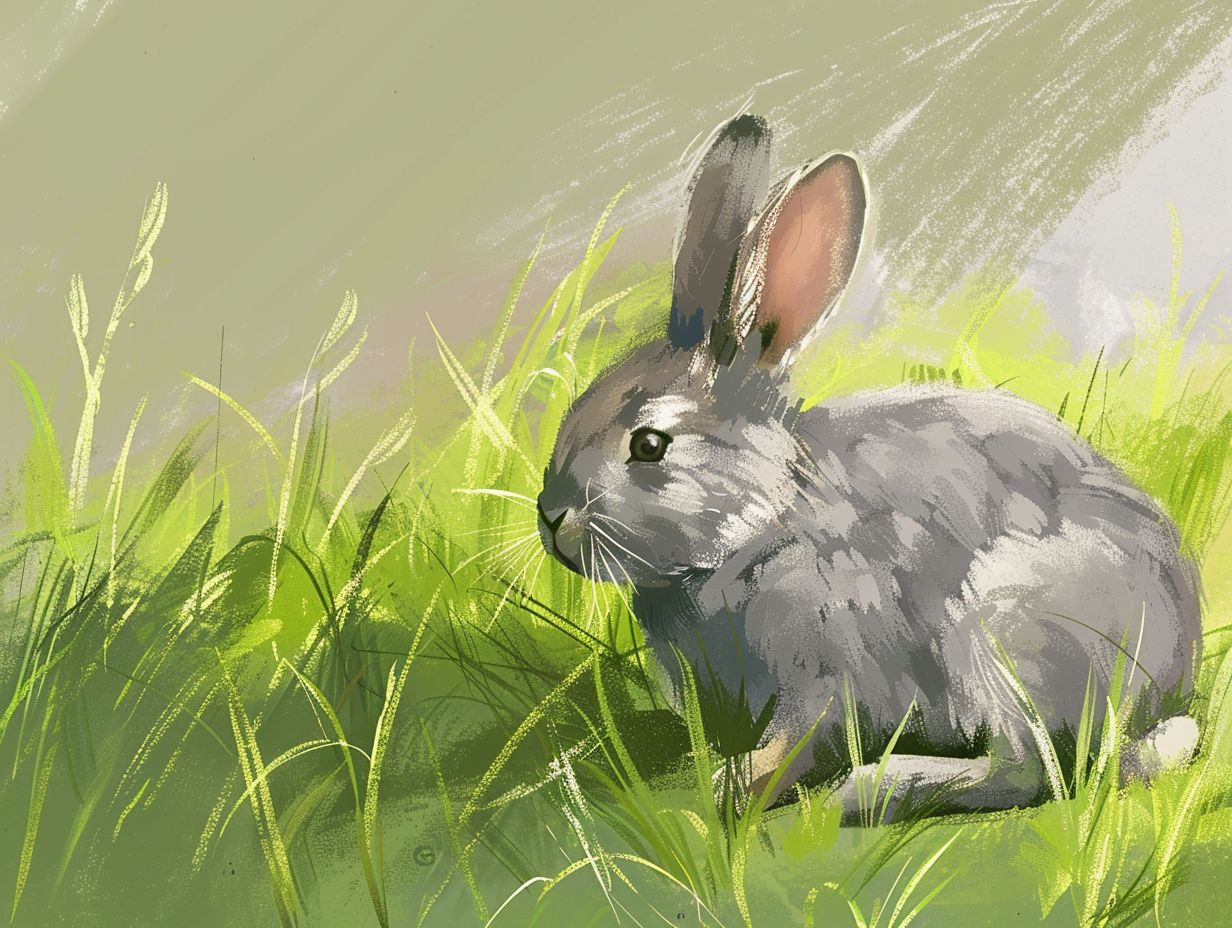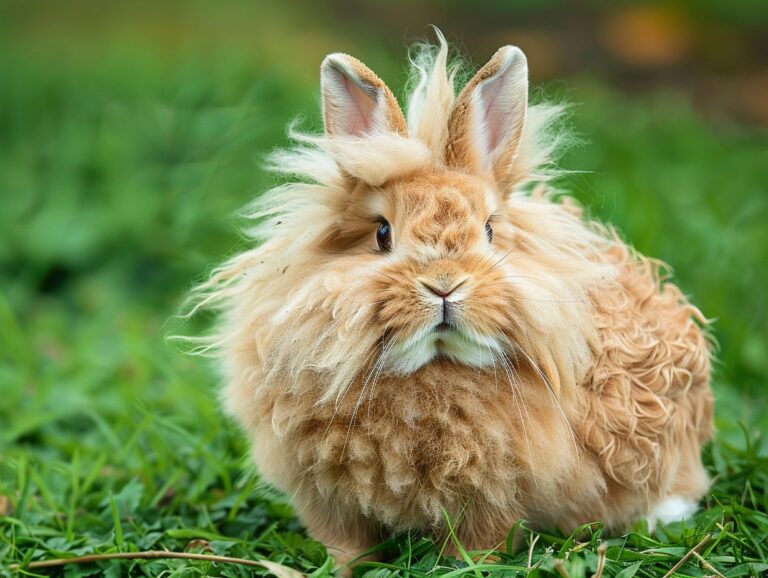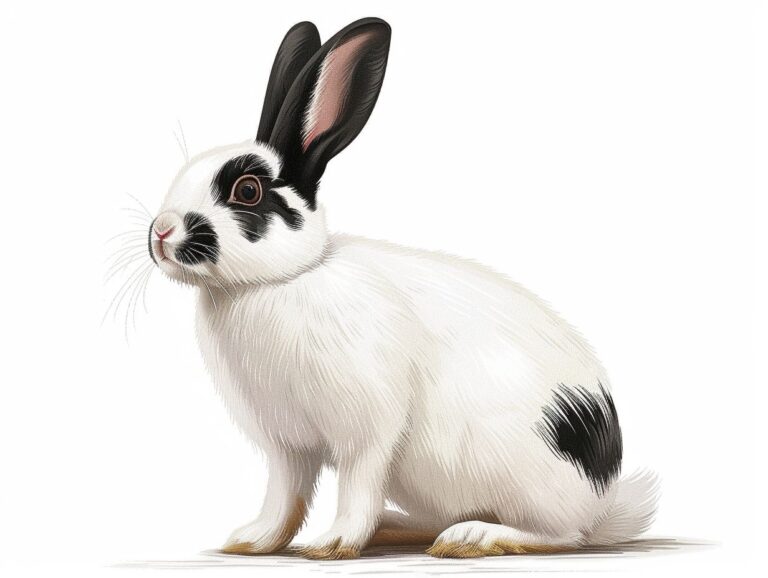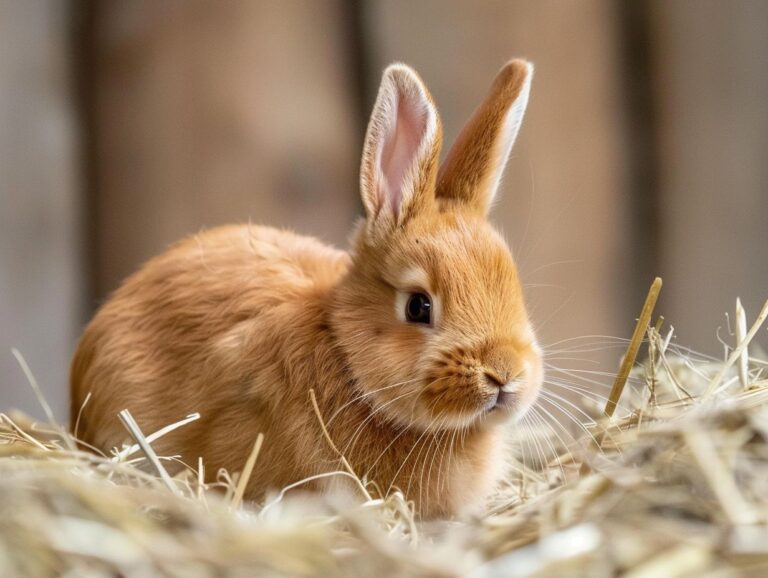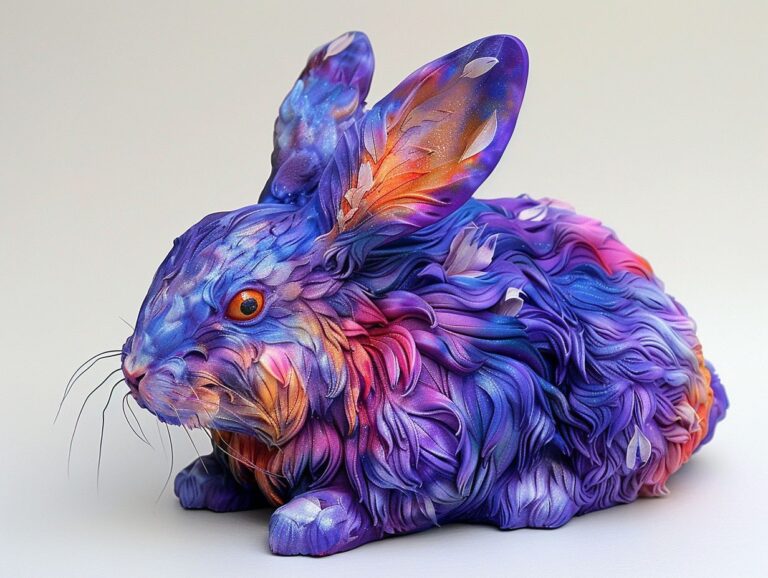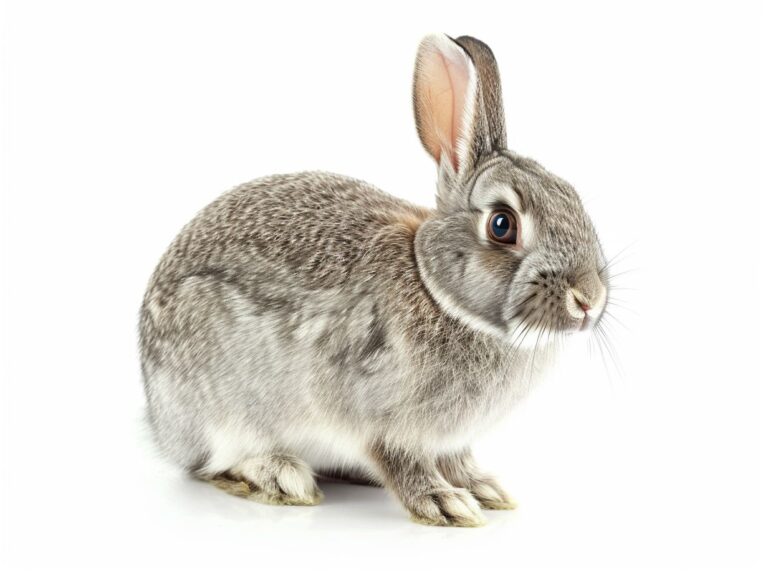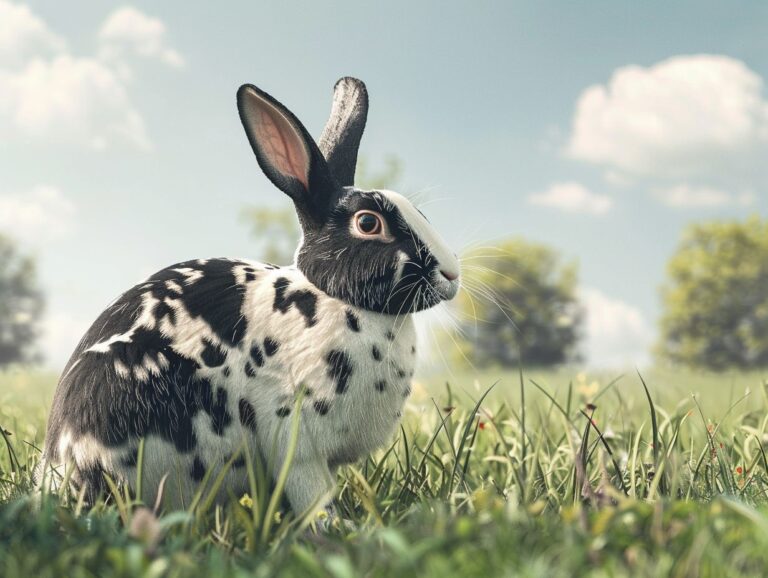Chinchilla Rabbit Breed: Characteristics, Care, History, and Breeding Practices
Curious about Chinchilla rabbits? From their unique physical appearance to their friendly temperament, this article covers everything you need to know about these adorable creatures.
Learn about their history, proper care, and common health issues. Discover the ins and outs of breeding Chinchilla rabbits, from selecting breeding stock to caring for newborn kits.
Whether you’re a current owner or considering adding a Chinchilla rabbit to your family, this comprehensive guide has you covered.
Key Takeaways:
What Is a Chinchilla Rabbit?
A Chinchilla Rabbit is a breed known for its excellent fur and meat qualities, particularly the American Chinchilla Rabbit, which has a rich history in the fur industry.
The American Chinchilla Rabbit is considered one of the oldest rabbit breeds, initially developed in the early 1900s in the United States. It was created by crossing the Standard Chinchilla breed with various other rabbits to enhance certain traits.
This breed gained popularity due to its soft, dense fur that closely resembles the color and texture of the Chinchilla rodent. In the fur industry, the American rabbit breed is highly valued for its luxurious pelt, often used in high-end fashion garments.
Apart from its fur quality, this breed is also appreciated for its gentle nature and adaptability to various climates.
What Are the Characteristics of a Chinchilla Rabbit?
Chinchilla Rabbits are known for their medium to large size, distinctive color patterns, and gentle temperament, making them popular pets among rabbit enthusiasts.
These rabbits typically weigh between 5 to 7 pounds, with a compact, yet sturdy build. Their fur is dense and soft, usually coming in shades of grey with a pearl-like appearance due to the agouti coloration. The Chinchilla breed includes three recognized color varieties: standard, sapphire, and chocolate. Their calm and friendly demeanor makes them great companions for both adults and children, as they are known for being easy to handle and enjoy human interaction.
Physical Appearance
Chinchilla Rabbits have dense fur with a coat resembling that of the Chinchilla lanigera species, which requires regular grooming to maintain its quality and appearance.
These adorable creatures are truly unique in appearance. Their fur texture is incredibly soft and luxurious, with a striking silver-tipped effect that gives them a shimmering quality. Chinchilla Rabbits come in a variety of coat colorations, ranging from the classic grey to more rare shades like blue or white.
Due to the density of their fur, these rabbits require regular grooming to prevent matting and maintain their beautiful appearance. Their coat not only contributes to their charm but also serves as protection from the elements, keeping them warm and comfortable.
When you see a Chinchilla Rabbit, you can’t help but notice the striking resemblance they bear to the Chinchilla lanigera species, with their luxurious coat and adorable demeanor capturing the essence of their wild counterparts.
Temperament
Chinchilla Rabbits are known for their gentle and docile temperament, making them ideal companions for families seeking a friendly and calm pet.
Their calm demeanor and affectionate nature make Chinchilla Rabbits great for families with children who enjoy interacting with pets. These rabbits often form strong bonds with their human companions, enjoying gentle petting and cuddling sessions. Their docile personality also makes them easy to handle and train, reinforcing positive interactions between the rabbit and its owners. Chinchilla Rabbits are known for their social nature, thriving in environments where they receive ample attention and companionship.
Lifespan
Chinchilla Rabbits typically have a lifespan of 8 to 12 years, with proper care, diet, and regular health check-ups being essential for ensuring a long and healthy life.
One of the crucial factors that play a significant role in the longevity of Chinchilla Rabbits is their diet. These rabbits thrive on a diet rich in hay, fresh vegetables, and high-quality pellets. Providing them with a balanced and nutritious diet not only supports their overall health but also helps in preventing various health issues.
The care practices implemented for Chinchilla Rabbits are instrumental in maintaining their well-being. Regular exercise, a clean and spacious living environment, and mental stimulation are essential components of their care routine.
What Is the History of Chinchilla Rabbits?
The history of Chinchilla Rabbits traces back to the efforts of French engineer M.J. Dybowski, with the breed gaining recognition through associations like the American Rabbit Breeders Association and playing a vital role in livestock breeding.
Chinchilla Rabbits, with their distinctive coat and docile nature, have become a symbol of elegance in the rabbit breeding world. Thanks to the meticulous breeding programs led by enthusiasts, these rabbits have not only maintained their unique characteristics but also contributed significantly to the conservation of endangered rabbit breeds. M.J. Dybowski’s vision laid the foundation for the breed’s development, and over time, Chinchilla Rabbits have captivated breeders and pet owners alike with their charming appearance and gentle temperament.
What Is the Proper Care for Chinchilla Rabbits?

When creating a habitat for your Chinchilla Rabbit, ensure it has sufficient space to hop around and exercise. Include a cozy nesting area with soft bedding for them to rest comfortably. As for their diet, opt for high-quality hay, fresh vegetables, and a small amount of pellets to meet their nutritional needs. Regular grooming, such as brushing their soft fur to prevent mats and trimming their nails, is crucial for their well-being.
Incorporating toys into their environment is essential to keep their minds active and prevent boredom. Consider providing chew toys, tunnels, and platforms for them to explore and play. These enrichment activities are vital for maintaining their physical and mental health. By following these care practices, you can ensure your Chinchilla Rabbit leads a happy and fulfilling life.
Housing
Proper housing for Chinchilla Rabbits involves providing a spacious crate for them to move around comfortably, incorporating potty training methods for a clean habitat, and implementing training for behavioral enrichment.
When setting up a habitat for Chinchilla Rabbits, ensure the crate is at least 24×24 inches in size to allow ample space for hopping and stretching. It’s vital to keep the environment clean by spot cleaning daily and conducting a deep clean weekly to prevent any build-up of waste. Utilizing potty training techniques can help maintain a hygienic living space, such as placing a litter box in a designated corner of the crate. Chinchillas are intelligent creatures that benefit greatly from mental stimulation, so incorporating training sessions with positive reinforcement can keep them engaged and happy.
Diet
A healthy diet for Chinchilla Rabbits should include a mix of hay, fresh vegetables, and pellets to ensure proper nutrition and dental health due to their continuously growing teeth.
Hay is the cornerstone of a Chinchilla Rabbit’s diet, providing essential fiber that aids in digestion and helps wear down their teeth, preventing dental issues that can arise from overgrown molars. Fresh vegetables, such as dark leafy greens and carrots, offer vital vitamins and minerals crucial for overall health and wellbeing.
Along with hay and vegetables, specialized pellets specifically formulated for Chinchilla Rabbits are vital to meet their dietary requirements. These pellets contain necessary nutrients to supplement their diet and should make up a significant portion of their daily food intake.
Grooming
Regular grooming sessions are essential for maintaining the coat health and preventing potential fur blockages in Chinchilla Rabbits, contributing to their overall well-being and minimizing grooming-related health issues.
Chinchilla Rabbits have dense fur that requires careful attention to prevent mats and tangles, which can lead to discomfort and skin irritation if not properly handled. An important aspect of grooming these delicate creatures involves regular brushing with a suitable slicker brush to remove loose fur and distribute natural oils for a healthy coat. Ensuring their nails are trimmed to a proper length is crucial to prevent issues with mobility and injuries. Proper grooming not only keeps your Chinchilla Rabbit looking pristine but also plays a vital role in their physical health and emotional well-being.
Exercise
Regular exercise and physical activity are vital for the well-being of Chinchilla Rabbits, with leash training being an option for supervised outdoor activities that enhance their lifestyle and overall health.
Chinchilla Rabbits, being naturally active animals, require ample opportunities to stretch, hop, and explore their environment to maintain good physical health. Physical activity not only helps in preventing obesity but also ensures proper muscle development and mental stimulation. Incorporating indoor exercise spaces like tunnels, toys, and platforms can encourage their natural behaviors and satisfy their instinctual need for movement. Leash training allows Chinchilla Rabbits to safely enjoy the outdoors under supervision, granting them exposure to fresh air and different stimuli. It’s important to start slow and gradually acclimate them to the harness for successful outdoor excursions.
How to Breed Chinchilla Rabbits?
Breeding Chinchilla Rabbits involves selecting quality breeding stock, preparing for the mating process, caring for pregnant does, and providing nurturing care for newborn kits.
In terms of selecting breeding stock for Chinchilla Rabbits, look for individuals that exhibit desirable traits such as good health, strong build, and gentle temperament. It is essential to ensure that both the male and female rabbits are in prime condition for breeding to increase the likelihood of successful mating.
As you prepare for the mating process, create a suitable environment that encourages natural behaviors. Introduce the rabbits gradually, allowing them to familiarize themselves with each other’s scent and presence before letting them mate.
Once the breeding has taken place, closely monitor the pregnant does, providing them with a comfortable nesting area and a balanced diet to support their health and the development of the litter.
After the gestation period, be prepared for the arrival of newborn kits by ensuring a warm and safe nesting space equipped with suitable bedding material. Regularly check on the kits to ensure they are nursing and receiving adequate care from their mother.
Selecting Breeding Stock
Choosing the right breeding stock is crucial in maintaining the breed’s standard characteristics and ensuring the genetic diversity necessary for a healthy Chinchilla Rabbit population.
When selecting breeding stock for Chinchilla Rabbits, adherence to breed standards is paramount. Breed standards outline the ideal characteristics that distinguish the Chinchilla Rabbit, such as fur color, body shape, and ear length.
By choosing rabbits that meet these standards, breeders contribute to preserving the unique identity of the breed. Genetic diversity plays a vital role in safeguarding against hereditary health issues and promoting overall resilience within the population. This emphasis on diversity not only enhances the rabbits’ well-being but also ensures the sustainability of the breed for future generations.
Preparing for Breeding

Ensuring a healthy diet is fundamental. Chinchilla Rabbits need a diet rich in fiber, provided through high-quality hay and fresh vegetables. Water availability should be constant to prevent dehydration during breeding.
Creating a stress-free environment is crucial for successful breeding. This includes ensuring proper hygiene in their living space and minimizing disturbances. It is important to monitor the doe’s reproductive cycle to determine the ideal time for mating.
Mating Process
The mating process for Chinchilla Rabbits involves careful observation, assistance if needed, and post-mating care to ensure the health and well-being of the pregnant doe and the successful reproduction of the breed.
During mating, the male chinchilla will mount the female, and copulation can last from a few seconds to several minutes. It is essential to monitor this process to ensure successful mating. Challenges may arise if the rabbits are incompatible or if there are any health issues.
Once mating is successful, the pregnant doe requires special care to support the pregnancy and ensure healthy offspring. Providing a stress-free environment, proper nutrition, and veterinary check-ups are crucial aspects of post-mating care.
Caring for Pregnant Doe
Caring for a pregnant Chinchilla Rabbit doe involves providing adequate nutrition, monitoring her health, and creating a comfortable nesting environment for the impending birth of the kits.
Proper nutrition during pregnancy is crucial for the health of both the mother and her offspring.
- High-quality hay and fresh vegetables should form the basis of her diet, supplemented with a small amount of pellets to ensure all essential nutrients are covered.
Regular health check-ups are essential to detect any issues early on.
- Monitoring her weight, activity levels, and overall well-being can help identify any deviations from normal that may require veterinary attention.
As the due date approaches, providing a quiet, secluded nesting area with soft bedding materials like hay or shredded paper is essential for the doe to feel safe and secure.
Caring for Newborn Kits
Caring for newborn Chinchilla Rabbit kits involves providing warmth, proper nutrition, and gentle handling to support their growth and development during the critical early stages of life.
Keeping the environment cozy is crucial, as these young ones cannot regulate their body temperature well initially. Providing a heat source, such as a heat lamp or heating pad, can mimic the warmth they would experience in the mother’s nest. Their diet should consist of special milk formula suitable for their delicate systems; consult a veterinarian for recommendations on feeding schedules and quantities.
In terms of handling, it’s essential to be gentle and careful, as these kits are fragile. Engage in short, quiet interactions to get them accustomed to human touch and to build trust from an early age.
What Are the Common Health Issues of Chinchilla Rabbits?
Chinchilla Rabbits are prone to dental problems, respiratory infections, gastrointestinal stasis, and fur blockages, which are common health issues that require prompt veterinary attention.
A key factor contributing to dental issues in these rabbits is their continuously growing teeth, which can lead to malocclusion and overgrowth if not properly managed. Respiratory infections often arise from poor ventilation and can result in symptoms like sneezing, nasal discharge, and lethargy.
Gastrointestinal stasis is a serious concern in Chinchilla Rabbits, as their delicate digestive systems can easily be disrupted by stress, improper diet, or lack of exercise. This can lead to a slow-moving gut, causing discomfort and potential life-threatening complications.
Fur blockages, usually caused by excessive grooming or ingestion of hair, can obstruct the digestive tract and cause serious health issues if not addressed promptly by a veterinarian.
Dental Problems
Dental problems in Chinchilla Rabbits, such as overgrowth of teeth, malocclusion, and dental abscesses, can lead to pain, difficulty eating, and overall health complications if not addressed promptly.
When Chinchilla Rabbits develop overgrown teeth, it can result in sharp edges that injure the mouth, leading to discomfort and difficulty chewing. Malocclusion, a condition where the teeth don’t align properly, further exacerbates eating problems and can affect the rabbit’s overall well-being. Dental abscesses, on the other hand, can occur due to infected teeth roots or injuries, causing swelling, pain, and potential infections if left untreated.
In some cases, Chinchilla Rabbits may exhibit symptoms such as drooling, weight loss, reduced appetite, and even behavioral changes like irritability due to their dental issues. To address these problems, a veterinarian specializing in exotic animals should be consulted for proper diagnosis and treatment. Treatment options may include dental filing, tooth extraction, antibiotics for infections, and pain management to alleviate discomfort.
Respiratory Infections
Respiratory infections are a significant concern for Chinchilla Rabbits, as symptoms like sneezing, nasal discharge, and labored breathing can indicate underlying health issues that require immediate veterinary care.
Californian rabbit breed have delicate respiratory systems, making them vulnerable to infections that can quickly escalate if left untreated. It’s crucial to be aware of the potential risks such as pneumonia and upper respiratory tract infections.
These infections can be caused by various factors including stress, poor ventilation, or exposure to allergens. Prompt diagnosis is key, as an untreated respiratory infection can lead to more severe complications. Owners should observe their Chinchilla Rabbit closely for any signs of respiratory distress and consult a veterinarian at the first indication of trouble.
Gastrointestinal Stasis

Recognizing the symptoms of gastrointestinal stasis is crucial for early intervention. Common signs include decreased appetite, reduced fecal output, lethargy, and abnormal stool consistency. The causes of this condition may vary, including inadequate fiber intake, stress, dental issues, or underlying health problems.
To effectively manage gastrointestinal stasis, a care plan often involves providing a high-fiber diet, encouraging exercise, and ensuring proper hydration. Regular veterinary check-ups are vital to monitor the rabbit’s gastrointestinal health and make adjustments to the treatment plan as necessary.
Fur Blockages
Fur blockages are a common health issue in Chinchilla Rabbits, necessitating regular grooming to prevent hair ingestion and blockages in the digestive tract that can lead to serious health complications.
Grooming practices play a crucial role in preventing fur blockages in these adorable creatures. Regular brushing helps remove loose and dead hair, reducing the chances of ingestion during grooming sessions. It is essential to monitor Chinchilla Rabbits for symptoms of blockages such as decreased appetite, lethargy, and even painful bloating. Owners should also provide adequate hay and fiber-rich diet to support the natural digestive process and prevent hair from clumping together.
Ignoring the risks of fur blockages can result in severe consequences, including gastrointestinal stasis and possible surgical intervention. Ensuring proper hair maintenance not only keeps the rabbits healthy but also strengthens the bond between the pet and its owner, promoting a harmonious relationship.
Frequently Asked Questions
What are the characteristics of Chinchilla Rabbit Breed?
The Chinchilla Rabbit Breed is known for its distinctive silver-grey fur and dark points on its ears, nose, feet, and tail. They have a medium-sized body, weighing around 5-7 pounds, and have a calm and friendly temperament.
How should I care for a Chinchilla Rabbit Breed?
Chinchilla Rabbit Breeds require regular grooming to maintain their soft and dense fur. They also need a balanced diet of hay, pellets, vegetables, and fresh water. Providing them with a spacious and clean living environment is essential for their physical and mental well-being.
What is the history of Chinchilla Rabbit Breed?
The Chinchilla Rabbit Breed was first developed in France in the early 1900s by crossing Himalayan and Standard Chinchilla rabbits. They were primarily bred for their luxurious fur and later became popular as show rabbits due to their unique appearance and gentle nature.
What are the breeding practices for Chinchilla Rabbit Breed?
Chinchilla Rabbit Breeds should only be bred by experienced and responsible breeders to prevent any potential health issues. Proper nutrition, regular veterinary check-ups, and careful selection of breeding pairs are crucial for ensuring healthy and genetically sound offspring.
Are Chinchilla Rabbit Breed suitable as pets?
Yes, Chinchilla Rabbit Breeds make excellent pets for people of all ages. They are gentle, friendly, and easy to handle, making them great companions for children and adults alike. However, potential owners should be prepared for their grooming and dietary needs.
Do Chinchilla Rabbit Breeds have any health concerns?
Chinchilla Rabbit Breeds are generally hardy and healthy animals. However, they may be prone to dental issues, ear infections, and respiratory problems if their living conditions are not optimal. It is essential to monitor their health and seek veterinary care if any concerns arise.

